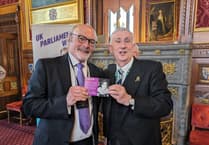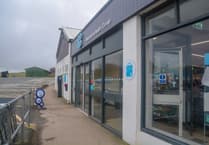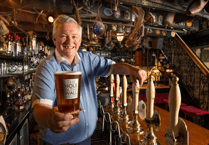AS this is the last column for us before the station once known as ‘Pirate FM 102’ is no more, with its last day of broadcasting coming on April 16, we thought we’d use it to wish the team there well and share some reflections on what the future holds for local radio.
Launching on April 3, 1992, the story of Pirate FM is intertwined with our own to an extent, for the launch of NCB Radio came from the fact our founder’s love of great, local radio was inspired by a childhood love of Pirate. Indeed, he often tells the tale of how he was in many ways a ‘pirate child’ for he was less than a year old when it launched, and it was something he’d listen to a lot of the time in his father’s lorry, after being picked up from school so Dad could finish his day’s work.
During trial broadcasts in 2010, one of which was from the Royal Cornwall Show, the NCB Radio team present found themselves coming to the aid of Pirate, when the then-new 3G phone signal failed in the area meaning they could not send content back to the studio. With NCB hidden in a corner of the press centre, they stood aside for a little bit to enable Pirate to use their equipment to keep their show on the road and were rewarded with an end-of-show pint in the sunshine.
But come April 17, the Cornish radio landscape is as much the same as it was prior to Pirate’s arrival in 1992 so-far as local FM commercial radio goes. There simply won’t be in the way it was before. We wish the presenters and staff who have managed to secure jobs at the replacement stations well, but it is hard not to feel sadness that a big part of Cornish life is consigned to the history books at a time where it was still thriving.
While the FM bandwidth here is now populated to an almost exclusive level by networked stations, it is as important as ever that the connection between radio and its communities is maintained by the community stations comprising of local volunteers. It is as important as ever not to solely seek to entertain, but to engage the areas they serve through the technologies of tomorrow, whether that might be internet or DAB.
For those still on FM, it is time OFCOM removed the rule where they couldn’t get more than 50% of revenue from advertising, a stranglehold which was put in place to protect the revenues of the independent local commercial radio stations that now no longer exist, as opposed to the multi-national conglomerates who own the stations in their place. But perhaps that’s a thought for another column.
With the BBC butchering its own local radio schedule at a time where the role it plays is needed as much now as ever, and commercial radio no longer existing, Pirate’s departure is a sad chapter in the story of Cornish broadcasting.




